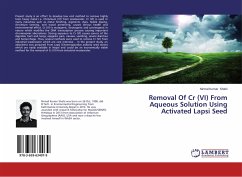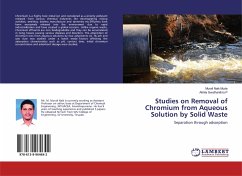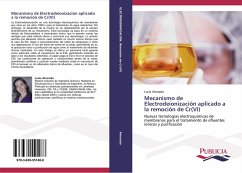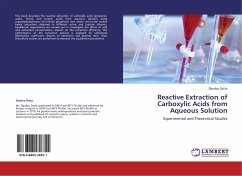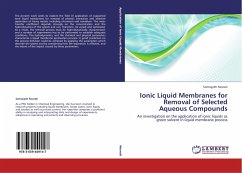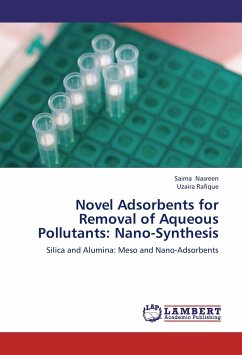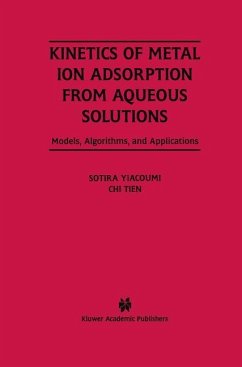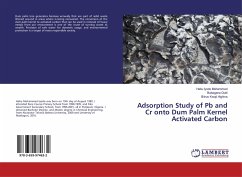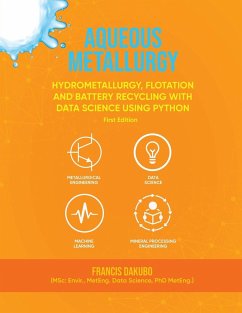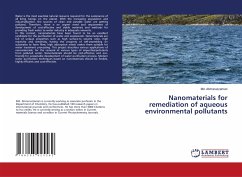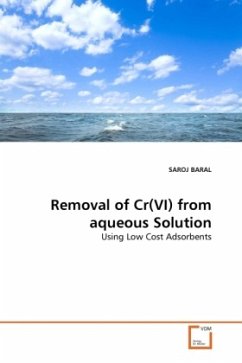
Removal of Cr(VI) from aqueous Solution
Using Low Cost Adsorbents
Versandkostenfrei!
Versandfertig in 6-10 Tagen
52,99 €
inkl. MwSt.

PAYBACK Punkte
26 °P sammeln!
Rapid industrialization and increase in population are responsible for the inclusion of heavy metals in the environment. Consequently, these metals are found well above the tolerance limit many a times in aquatic environment. The Cr(VI) is of particular concern because of its toxicity. Thus, treatment of the effluent to reduce/remove the pollutant before discharging into the environment becomes inevitable. Among various processes for Cr(VI) treatment, adsorption is an economically feasible alternate. In the present book, the removal of Cr (VI) from aqueous solution was investigated both in bat...
Rapid industrialization and increase in population are responsible for the inclusion of heavy metals in the environment. Consequently, these metals are found well above the tolerance limit many a times in aquatic environment. The Cr(VI) is of particular concern because of its toxicity. Thus, treatment of the effluent to reduce/remove the pollutant before discharging into the environment becomes inevitable. Among various processes for Cr(VI) treatment, adsorption is an economically feasible alternate. In the present book, the removal of Cr (VI) from aqueous solution was investigated both in batch and continuous mode. Different low cost adsorbents such as bauxite, sawdust and sweet water weed were used to determine the adsorption efficiency. The influence of agitation speed, pH, temperature, adsorbent dose, initial adsorbate concentration and contact time on the selectivity and sensitivity of the removal process were investigated. Experimental results are interpreted using different mathematical model such as , isotherm, kinnetic etc.



